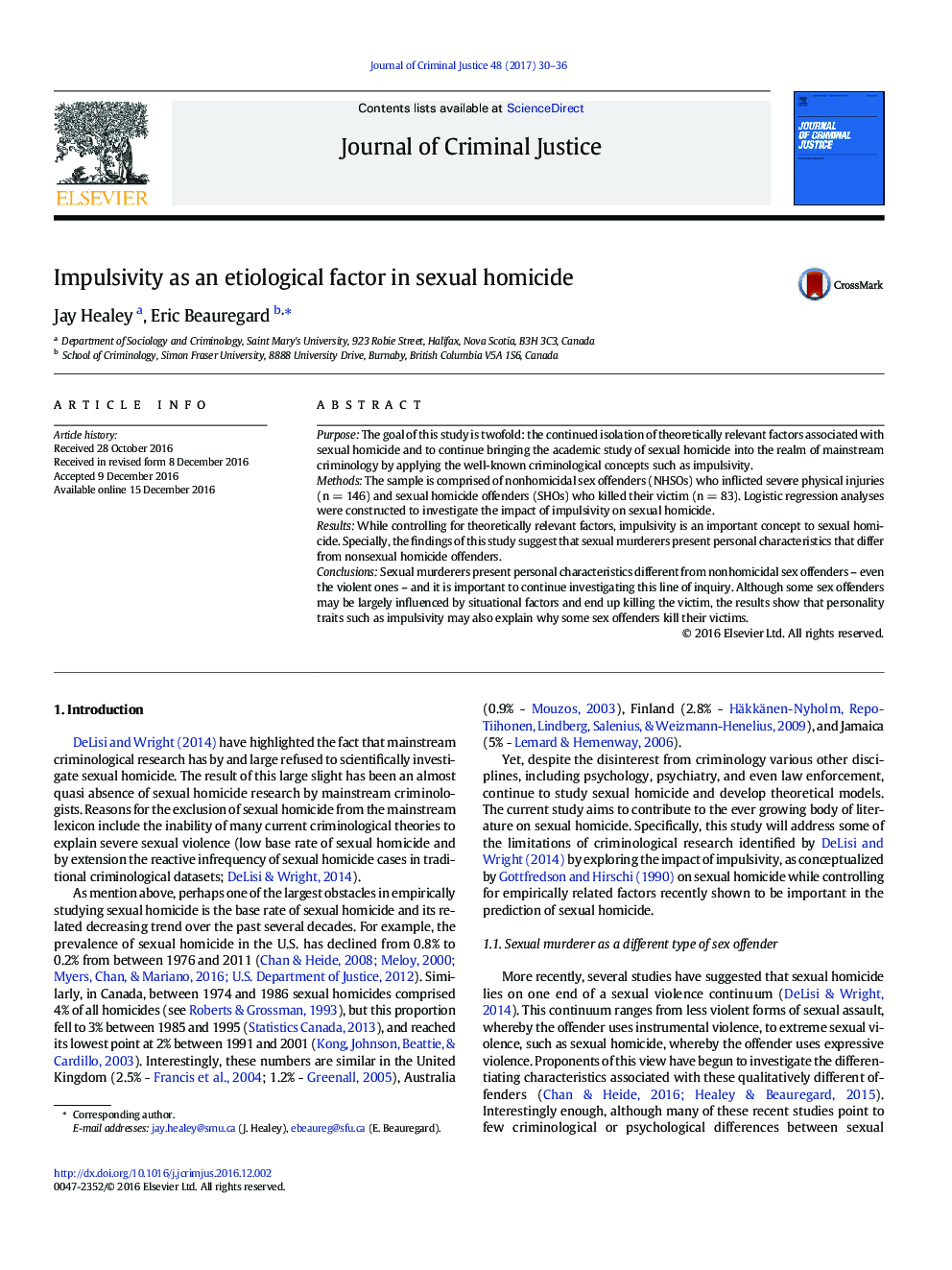| Article ID | Journal | Published Year | Pages | File Type |
|---|---|---|---|---|
| 5034357 | Journal of Criminal Justice | 2017 | 7 Pages |
â¢Sexual murderers are different from nonhomicidal sex offenders.â¢Sex offenders with higher impulsivity are more likely to kill.â¢Impulsivity is related to sexual homicide while controlling for deviant sexual preferences.â¢Impulsivity is related to sexual homicide while controlling for low self-esteem.â¢Low self-esteem is no longer related to sexual homicide after including impulsivity.
PurposeThe goal of this study is twofold: the continued isolation of theoretically relevant factors associated with sexual homicide and to continue bringing the academic study of sexual homicide into the realm of mainstream criminology by applying the well-known criminological concepts such as impulsivity.MethodsThe sample is comprised of nonhomicidal sex offenders (NHSOs) who inflicted severe physical injuries (n = 146) and sexual homicide offenders (SHOs) who killed their victim (n = 83). Logistic regression analyses were constructed to investigate the impact of impulsivity on sexual homicide.ResultsWhile controlling for theoretically relevant factors, impulsivity is an important concept to sexual homicide. Specially, the findings of this study suggest that sexual murderers present personal characteristics that differ from nonsexual homicide offenders.ConclusionsSexual murderers present personal characteristics different from nonhomicidal sex offenders - even the violent ones - and it is important to continue investigating this line of inquiry. Although some sex offenders may be largely influenced by situational factors and end up killing the victim, the results show that personality traits such as impulsivity may also explain why some sex offenders kill their victims.
